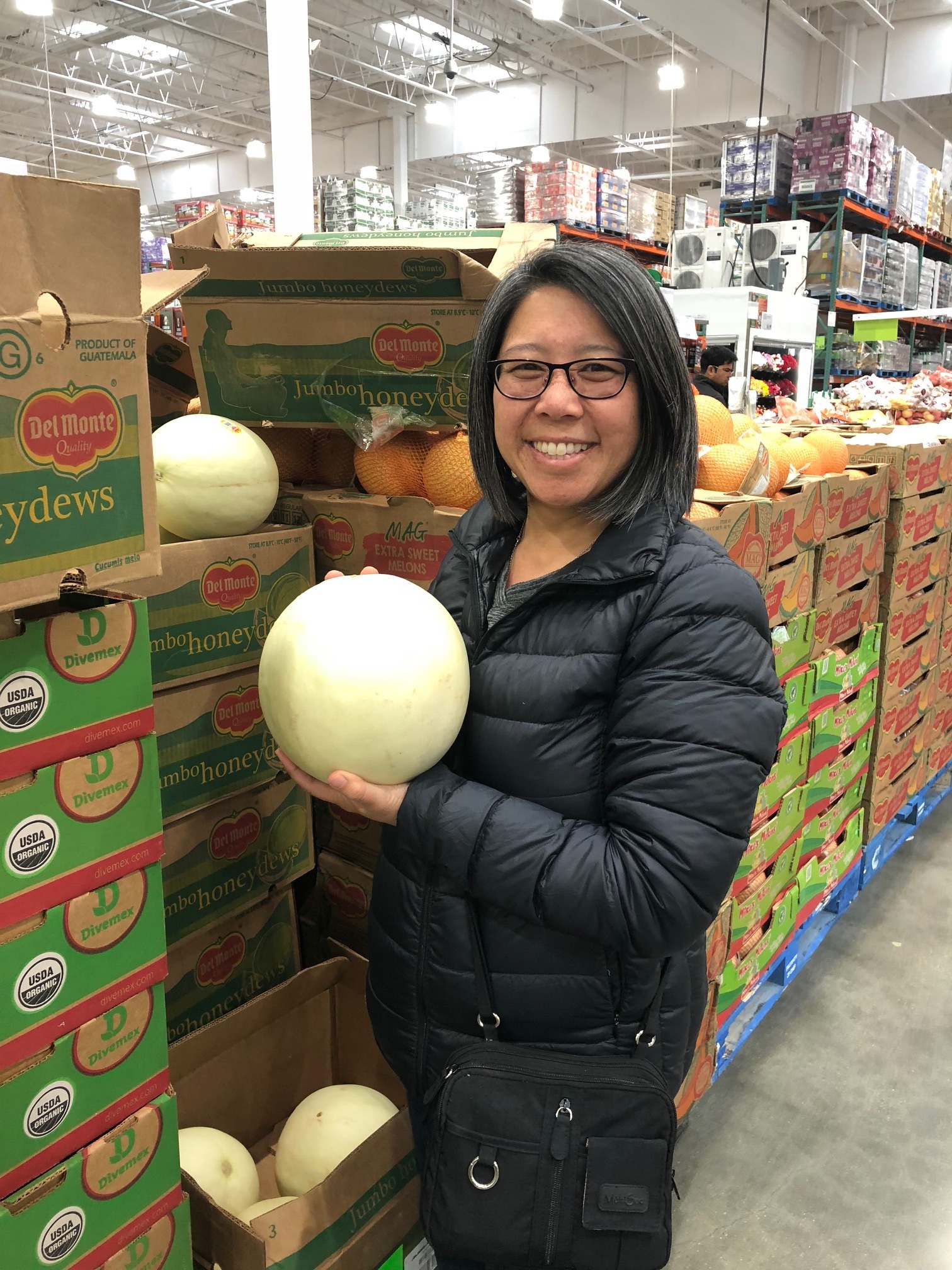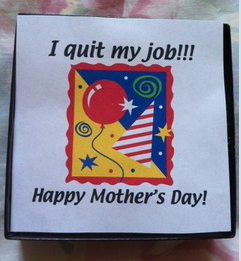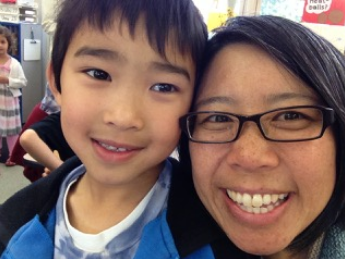By creatively expanding the concept of the family unit to include the larger world, Joann Wong fueled a lifelong passion for public service. This is the final part in a five-part series of posts based on an interview I conducted with her. In Part 4, Joann described her transition from health care to program evaluation and how her path led her back to her alma mater.
Sarah: Tell me about your current job—it has a long, fancy title.
Joann: Yeah, it’s a mouthful: Program and Organizational Effectiveness Director at the Haas Center for Public Service at Stanford. My role involves assessing the impact of Stanford’s public service and civic engagement programs for students. The work involves data analysis, identifying what’s working well and what can be improved.
S: How do you go about doing that?
J: We collect data through different surveys that ask questions like, “How satisfied were you with this experience? What skills or insights did you gain? How has this impacted your career or academic trajectory?” In addition, we may conduct focus groups, immediately after the students’ engagements end or a number of years later. We have also started looking at trend data.
Stanford has gone through a major shift in how we contextualize service programs. Thirty-plus years ago, Stanford’s President Don Kennedy recognized the value of a life in public service and initiated efforts to better understand the different ways students engage in service at Stanford. This process revealed the need for greater institutional support. Without that intention, university administrations and students can lose sight of the value of service. Ultimately, the university established Stanford’s Public Service Center in 1985. Since then, we’ve always offered service opportunities at varying levels including fellowships for domestic and international placements where students work with community organizations or engage in public service that links theories learned in class with practical application in the community.
Two years ago, just after I came on board, the university launched an initiative that ramps up its already strong commitment to infusing service into all aspects of an undergraduate education.
The Cardinal Service Initiative has four components. Cardinal Quarter is an immersive, nine-week public service experience at an organization for at least 35 hours a week. There are funds available to support students to participate regardless of their financial situation. I collaborated with colleagues to develop a survey to identify areas of the program that work well and areas that need improvement, in order to understand which aspects provide a really meaningful experience for the students and the community partners.
Cardinal Courses integrates service learning into an academic setting and links students with hands-on service opportunities with community organizations. Also, students who meet certain criteria can apply for a Cardinal Service notation on their transcript. The university’s support and approval to incorporate this notation on students’ transcripts is a major milestone in acknowledging the importance and value of students engaging in public service.
Cardinal Careers provides advising and other programmatic elements that strive to link students with opportunities to explore work in the public interest either as a primary job or in a volunteer capacity. And Cardinal Commitment, the newest component, addresses the fact that many students are already doing service in a regular way, for example tutoring youth on a weekly basis or working on an advocacy or social issue, like the environment and climate change. Through Cardinal Commitment, we’re recognizing that contribution.
We hope incoming students will choose Stanford because service is an integral part of the University’s culture and Cardinal Service has been infused in our admissions and outreach materials.
Jo and colleagues
The Haas Center for Public Service
S: How’s it been being back at your alma mater in this new capacity?
J: As an undergrad, my home at Stanford was the Haas Center. So it’s amazing to be working there now.
But as much as I love Stanford and the Haas Center, it’s not always easy being in a bastion of privilege. There are times I wonder if I might have a greater impact in helping others by returning to work with a community organization. The past two years since Trump was elected, I’ve been heartbroken and shocked to see that privilege and entitlement runs deeper than most well-intentioned white people are even aware of. The racism my parents had to endure is stronger than ever. Sometimes I tell colleagues I’m scared I’m going to become this angry person of color who shuts down and can’t listen. Yesterday I was at Whole Foods, buying a honeydew melon. Good Chinese shopper that I am, I was searching for the best fruit. I spotted one at the bottom of the pile so I was carefully stacking all the other melons to one side. Someone behind me said, Watch out, someone’s behind you. This woman was hovering. As soon as I uncovered the melon I wanted, she reached and took it. I said, Oh, I was going to take that one. She looked at me and turned and walked away with the fruit. I wanted to say something nasty to her about being an entitled white being. I’ve never wanted to say something like that in the past. Then I reminded myself, Jo, it’s a melon!
By the way, if my dad had been in my situation, he would have cussed her out! Butchers swear a lot. My brother points out that my father always spoke English with a Chinese accent—except when he swore.
S: How’s it going with work-life balance?
J: I’m back to full-time work. But I’ve gotten better at setting clear boundaries. I’ve learned to say no when I feel I need to and am more direct with requests regarding my needs as they’re aligned with my principles and values. Faith now plays a significant part in the way I view my work. I see what I do as ultimately God’s plan, so I’m not as invested in trying to control things as I was in the past.
S: When you say faith, do you mean Christian faith? Do you consider yourself a Christian?
J: Over time, I’ve done a lot of soul-searching and reconnecting with my spirituality. I identify as Christian; I believe in Christ. This is a whole other conversation, but I have issues with Christians who use their faith to push their agenda, particularly political agendas. That’s not what it’s about for me. My perspectives are influenced by how my piano teacher carried herself as a Christian and how she treated others. I’m aware that my time here is temporary, and I view the gifts, opportunities and challenges in my life as part of a plan I can’t even understand. I go to church, and Fred and I are united in wanting to have a home that’s based in faith.
S: You mentioned to me in a recent email that you’re mentoring a group of Stanford students. What’s one thing you want them to know?
J: Embrace change—recognize the importance of flexibility and fluidity, even if it makes you uncomfortable. And know that things really do work out. If someone had asked me 20 years ago whether I’d be working at Stanford now, I would have said, No way! I live by the mantra, Follow your passion. Hone in on what sparks joy and excitement—what you feel a connection to. Don’t be afraid to explore it; develop experiences that honor it. Whenever I’ve tried to work just for money, I didn’t enjoy it. Work has always been far more fulfilling to me if it brought me joy and provided me with a meaningful way to contribute and support others. That’s when I’ve thrived and done my best.
-
August 2021
- Aug 31, 2021 The Heart Is the Major Target—Part 9: The Teacher Role Isn't My Essence Aug 31, 2021
-
June 2021
- Jun 13, 2021 The Heart Is the Major Target—Part 8: Machines Spilling Out Teachers Jun 13, 2021
-
April 2021
- Apr 14, 2021 The Heart Is the Major Target—Part 7: A Waterfall of Inspiration Apr 14, 2021
-
February 2021
- Feb 14, 2021 The Heart Is the Major Target—Part 6: Grab the Right Computer File Feb 14, 2021
-
December 2020
- Dec 26, 2020 The Heart Is the Major Target—Part 5: Yoga Is My Second Child Dec 26, 2020
-
November 2020
- Nov 5, 2020 The Heart Is the Major Target—Part 4: Wow, This Is Me Nov 5, 2020
-
October 2020
- Oct 4, 2020 The Heart Is the Major Target—Part 3: In Exile in My Own Country Oct 4, 2020
-
August 2020
- Aug 23, 2020 The Heart Is the Major Target—Part 2: Openness to the Unseen Aug 23, 2020
- Aug 2, 2020 The Heart Is the Major Target—Part 1: Let's Move Around; We'll Feel Better Aug 2, 2020
-
July 2020
- Jul 25, 2020 Educator Wellness Series Conclusion: Moving Forward with Wellness Jul 25, 2020
- Jul 6, 2020 Educator Wellness Practice #10: Inhabiting the Dignified Stance of "Adequate" Jul 6, 2020
-
June 2020
- Jun 17, 2020 Educator Wellness Practice #9: Jun 17, 2020
- Jun 3, 2020 Educator Wellness Practice #8: Reducing Stress Through Body Scanning Jun 3, 2020
-
May 2020
- May 21, 2020 Facebook Live Event: A Conversation About the Impact of Saying Goodbye to Students May 21, 2020
- May 13, 2020 Educator Wellness Practice #7: Setting Intention and Letting Go of Results May 13, 2020
- May 6, 2020 Educator Wellness Practice #6: Practicing Goodwill as Self-Care May 6, 2020
-
April 2020
- Apr 29, 2020 Educator Wellness Practice #5: Dealing with Constant Change Apr 29, 2020
- Apr 22, 2020 Educator Wellness Practice #4: Listening to Silence Apr 22, 2020
- Apr 21, 2020 Facebook Live Event: A Conversation About the Importance of Self-Care Apr 21, 2020
- Apr 15, 2020 Educator Wellness Practice #3: Apr 15, 2020
- Apr 8, 2020 Educator Wellness Practice #2: Engaging Wisely with News and Media Apr 8, 2020
- Apr 1, 2020 Educator Wellness Practice #1: Breathe ... Keep Breathing Apr 1, 2020
-
March 2020
- Mar 25, 2020 Educator Wellness Series for Collaborative Classroom Mar 25, 2020
-
May 2019
- May 19, 2019 Managing to Build Bridges - Part 8: Do We Want to Be Right in a Dictionary Sense? May 19, 2019
-
April 2019
- Apr 27, 2019 Managing to Build Bridges - Part 7: You Just Need to Find a Good Husband Apr 27, 2019
- Apr 6, 2019 Managing to Build Bridges - Part 6: Human Remains and Cultural Artifacts Apr 6, 2019
-
March 2019
- Mar 17, 2019 Managing to Build Bridges - Part 5: Poetry Has No Rules Mar 17, 2019
- Mar 3, 2019 Managing to Build Bridges - Part 4: Dessert Goes to a Different Stomach Mar 3, 2019
-
January 2019
- Jan 13, 2019 Managing to Build Bridges - Part 3: I Felt Pretty Stupid Jan 13, 2019
-
December 2018
- Dec 9, 2018 Managing to Build Bridges - Part 2: Such a Bad Kid Dec 9, 2018
-
November 2018
- Nov 23, 2018 Managing to Build Bridges - Part 1: The Pressure to Be a Certain Type of Girl Nov 23, 2018
-
October 2018
- Oct 23, 2018 Leadership Without Ego - Part 6: Mayberry with an Edge Oct 23, 2018
- Oct 1, 2018 Leadership Without Ego - Part 5: Everyone Everywhere Deserves to Make Art Oct 1, 2018
-
September 2018
- Sep 10, 2018 Leadership Without Ego - Part 4: I'm About Ready to Swear Sep 10, 2018
-
August 2018
- Aug 19, 2018 Leadership Without Ego - Part 3: The Dalai Lama Breaks All the Rules Aug 19, 2018
-
July 2018
- Jul 29, 2018 Leadership Without Ego - Part 2: The Kids Melted Under That Praise Jul 29, 2018
- Jul 10, 2018 Leadership Without Ego - Part 1: The Workshop Was Neutral Territory Jul 10, 2018
-
May 2018
- May 26, 2018 The Alchemy of Service - Part 5: Watch Out, Someone's Behind You May 26, 2018
- May 6, 2018 The Alchemy of Service - Part 4: Fireworks and Tears May 6, 2018
- May 5, 2018 The Alchemy of Service - Part 3: Joann Wong! You Are Chinese! May 5, 2018
-
April 2018
- Apr 6, 2018 The Alchemy of Service - Part 2: Mom, It's Only a Nickel Apr 6, 2018
-
March 2018
- Mar 19, 2018 The Alchemy of Service - Part 1: Mouse Soup Mar 19, 2018
-
February 2018
- Feb 18, 2018 Back to the Garden - Part 4: Mountain Lion Footprints on the Deck Feb 18, 2018
- Feb 3, 2018 Back to the Garden - Part 3: "You're a Good Egg—Happy Easter" Feb 3, 2018
-
January 2018
- Jan 15, 2018 Back to the Garden - Part 2: "A Pretty Big Failure" Jan 15, 2018
- Jan 1, 2018 Back to the Garden - Part 1: "Aesthetic Shock" Jan 1, 2018
-
August 2017
- Aug 15, 2017 Goodbye Self-esteem, Hello Self-compassion – Part 3: Real Love Aug 15, 2017
-
July 2017
- Jul 31, 2017 Goodbye Self-esteem, Hello Self-compassion – Part 2: Mirror, Mirror Jul 31, 2017
- Jul 17, 2017 Goodbye Self-esteem, Hello Self-compassion – Part 1: Bashing Vasco Jul 17, 2017
-
May 2017
- May 28, 2017 This Thing I Found: Teens Teach Us How to See Freshly May 28, 2017
-
March 2017
- Mar 20, 2017 Dream On - Part 6: Dream Analysis Example Mar 20, 2017
- Mar 7, 2017 Dream On - Part 5: A Dream Analysis Technique (cont.) Mar 7, 2017
-
February 2017
- Feb 20, 2017 Dream On - Part 4: A Dream Analysis Technique Feb 20, 2017
-
January 2017
- Jan 22, 2017 Dream On - Part 3: Recording Dreams Jan 22, 2017
- Jan 15, 2017 Dream On - Part 2: Dream Recall Jan 15, 2017
-
December 2016
- Dec 30, 2016 Dream On – Part 1 Dec 30, 2016
- Dec 12, 2016 Enjoying the Ride of Serendipity Dec 12, 2016
- Dec 6, 2016 Agnes Martin: A Singular Career Dec 6, 2016

















